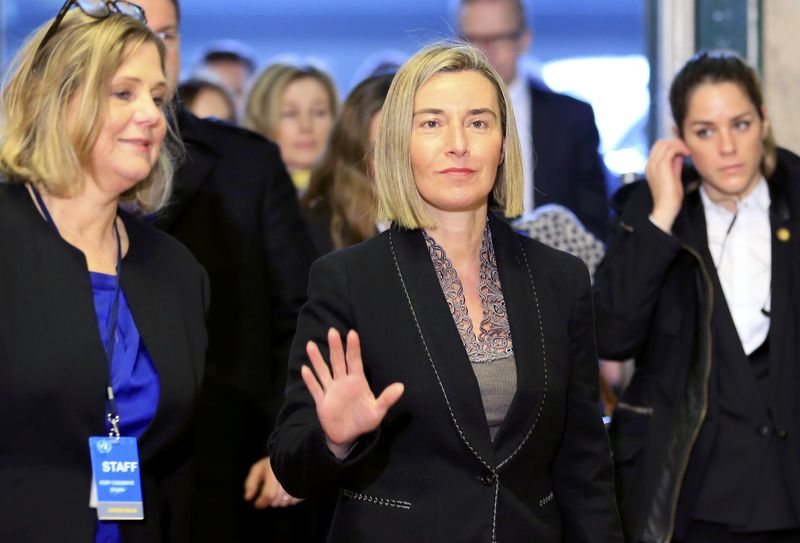GENEVA (Reuters) - Foreign ministers of Britain, Greece and Turkey were to meet in Geneva on Thursday in an attempt to thrash out a security deal for a post-settlement reunited Cyprus.
For the first time in decades, the three countries were to address a 1960 treaty which allows intervention in Cyprus, a pretext used by at least one of them to intervene in the island in the past.
Cyprus was split in a Turkish invasion in 1974 following a brief coup engineered by the military then ruling Greece. It has been divided since, with Turkish Cypriots in its north and Greek Cypriots in its south.
Nicos Anastasiades and Mustafa Akinci, the respective leaders of the Greek and Turkish Cypriot communities, have been in Geneva for four days trying to reach a deal which would see the country united again under a two-state federation.
"I welcome the continued courage and commitment that has been shown by both sides," British Foreign Secretary Boris Johnson said in a statement. "The talks in Geneva on the Cyprus settlement offer both sides a unique opportunity to find a solution."
London was willing to help in any way it could, he added.
Greek Cypriots, who represent Cyprus in the EU, want the guarantor system dismantled because of Turkey's invasion in 1974. Turkish Cypriots, who were targeted by Greek Cypriot nationalists before the war, want Turkish guarantees maintained.
In a groundbreaking move on Wednesday, the sides submitted proposals on how to define the boundaries between the two sides. Greek and Turkish Cypriots plan to submit maps to the United Nations detailing their proposals on territorial boundaries between constituent states in a two-zone federation.
Britain, the former colonial power in Cyprus, has offered to relinquish about 50 percent of territory it still retains on the island, known as sovereign base areas, to facilitate a deal.

One of its two bases in Cyprus, Akrotiri, is a Royal Air Force outpost which has been instrumental in attacking Islamic State targets in Iraq.